Planning a Trip to Thailand: What to Know Before You Go
How safe is Thailand? Is it expensive? What etiquette do you need to know? Nomad Ronan offers his advice on understanding Thai culture, staying safe, the best time to visit, traveling on a budget, and more.
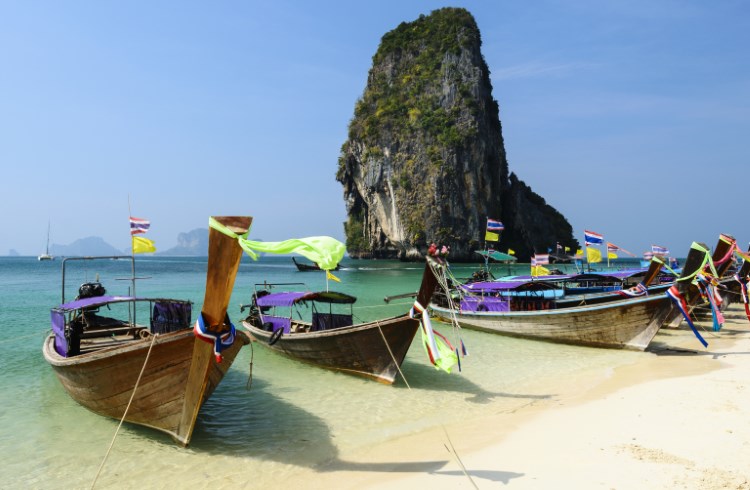 Photo © Getty Images / Deejpilot
Photo © Getty Images / Deejpilot
Headed to Thailand for the first time? It is a beautiful and fascinating country, but there are some things you should be careful of when visiting. Check out these travel tips to help avoid trouble and make the most of your trip, gleaned from my eight years of living on and off in Thailand, where my wife was born and raised.
- Is it safe to travel to Thailand?
- Staying healthy in Thailand
- Thai culture and etiquette
- Managing Thailand's weather
- Best time to visit Thailand
- Is Thailand expensive?
- Learn some useful Thai phrases
Is it safe to travel to Thailand?
Thailand is a very safe country for travelers who use common sense. Those who don’t can get scammed, sick, arrested, or badly injured.
The most dangerous aspect of Thailand is its roads. And, according to the Bangkok Post, motorcyclists account for 74% of road fatalities in Thailand. Don’t rent a motorbike unless you’re an experienced motorcyclist (and properly licensed to ride a motorbike).
Be extra careful when crossing roads, as many motorcyclists ignore red lights and zebra crossings. And if you hire a car, drive more slowly and cautiously than you would back home, as the traffic is remarkably unpredictable. Motorbikes are liable to pull straight out in front of your car without even looking, as I learned myself during one accident.
Staying healthy in Thailand
Never drink the tap water, and be wary of filtered water and drinks with ice in cheaper venues. Most of the times I’ve been sick in southeast Asia have been linked to ice or supposedly filtered water. Avoid eating seafood in towns distant from the coast, as the fish may not be fresh. Finally, when going to street vendors or small restaurants, avoid the pre-cooked foods sitting in pots and pans and instead order a specific dish so it will be prepared right there and then.
Thai culture and etiquette
On my first trip to Thailand, I learned a swift lesson: never say anything disrespectful about the Thai royal family. I watched a drunken Englishman get slapped in the face and dragged out of a Phuket bar after making a joke about the Thai king.
Don’t be that guy. Refrain from making negative remarks about the Royals in Thailand and be sure to join Thai people in standing silently to attention for the national anthem, which is played at 6pm every day in public spaces.
Another tip: be relaxed and polite when haggling. Some travelers take this activity very seriously, and it fails them. Meanwhile I’ve always had great success by being jovial while bargaining with Thai vendors, who enjoy a friendly back-and-forth exchange about price.
Thai people take hygiene very seriously, so you should too. Many Thai people shower up to three times a day, to ensure their cleanliness in the hot and humid environment. They’re also meticulous with keeping their houses clean, so if you’re invited to visit a Thai home, dress neatly and remove your shoes before entering.
Temples are sacred spaces – treat them as such. Don’t enter a temple when wearing scruffy or skimpy clothes. Be quiet and reserved, and don’t take photos of people when they’re praying. Simple, really.
Don’t raise your voice in public, especially to a Thai person. Showing frustration or anger outside of your home is considered a loss of face in Thai culture, both for you and the recipient of your excess emotions.
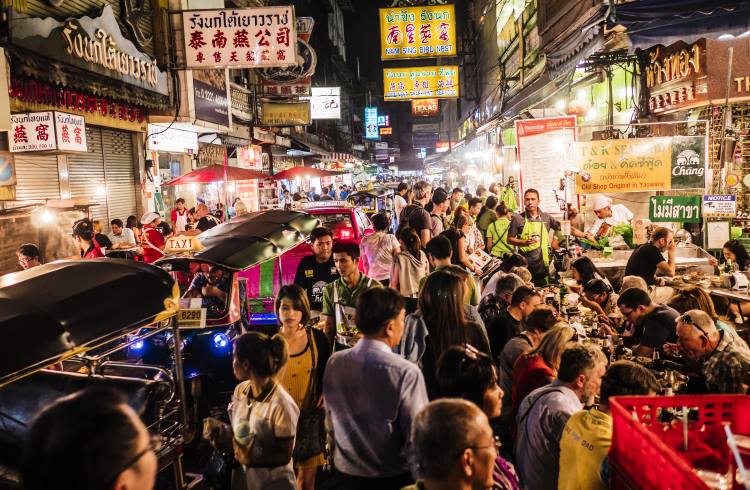
Managing Thailand's weather
Thai weather can be brutally hot, bracingly humid and, on occasions, very wet. When it comes to dealing with the challenging Thai climate, timing is everything, and it’s important to pace yourself. On my first visit, I was so intent on maximizing my stay that I went out sightseeing from morning to night, non-stop. Within four days I was exhausted and ill. Lesson learned.
Most of Thailand’s best experiences don’t involve air conditioning – exploring temples, markets, beaches, and forests – so you need a gameplan. Thailand’s weather is coolest in the mornings and late afternoons so that’s when you should be at your busiest. In the middle of the day, chill out at your hotel or in a restaurant.
Before you book your trip to Thailand, find out how travel insurance can cover adventure activities, lost or stolen baggage, sudden illness and more.
Best time to visit Thailand
Even more important than the time of day is picking the right time of year to visit. Thailand’s wet season runs from May to October. Southern Thailand – home to tropical resorts such as Phuket, Koh Samui, and Krabi – gets the worst of that weather. If you travel to Thailand during that period, the north is much drier. One positive is Thailand’s rain tends to arrive in occasional downpours, as opposed to constant drizzling. So, after sheltering during those heavy showers, you can head back out.
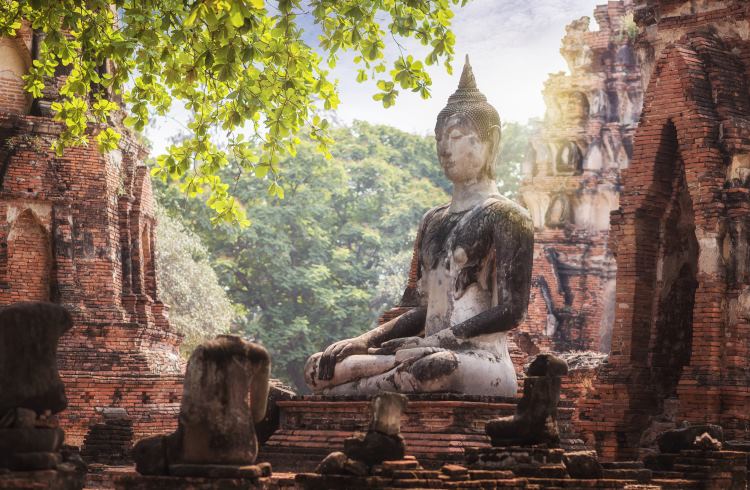
Is Thailand expensive?
It’s possible to have an extremely low-cost holiday in Thailand, particularly if you stay in modest accommodation and eat street food. What surprises many visitors, however, is that some things are more expensive in Thailand than they are back home.
Take wine, for example. Bottles of cheap Australian wine that would cost me US $6 (AUD $8) back in Perth, go for US $20 (THB 653) in Thailand. Imported beers, too, are more expensive in Thailand than in Europe, the US, or Australia. All imported alcohol is heavily taxed. Visitors also tend to be shocked by the high cost of foods such as cheese, sliced meats, and imported Western snacks.
The good news is Thai food is consistently excellent and remarkably cheap. Street vendors, basic restaurants, and shopping center food courts all serve delicious dishes such as green curry, basil chicken, and Khao Soi noodle soup for as little as US $1 (THB 33) per dish. And very cheap nights out can be had by sticking to local bars and restaurants, where bottles of refreshing Thai beer start from US $2 (THB 66) each.
Learn some useful Thai phrases
Thailand has one of the lowest rates of English-speaking proficiency among Asian countries, so you should make the effort to learn some Thai before visiting. There’s no need for you to memorize dozens of Thai phrases, but it’s good to know a few, and the Thai people you meet will appreciate your effort.
Here are some suggestions, in phonetic style. When you meet someone, greet them with “Sawa dee”. To thank them, say “Khob Khun Kap” if you are a man, or “Khob Khun Ka” if you are a woman. Read that last sentence carefully, as for quite a while I mistakenly changed from “Kap” to “Ka” depending on the sex of the person I was talking to, when it was only my gender that mattered. When bidding farewell, sign off with “Chok dee”, which translates to “good luck”.
When ordering food, it’s best to ask for a moderate amount of chili by saying “Mai Pet Mak”. If you ignore that advice you’ll probably be left asking “Hongnam you-tee-nye” which means, “where is the toilet?” You’ll also be desperately asking for some water, which in Thai sounds like “Chan kor diim naam”.
Related articles
Simple and flexible travel insurance
You can buy at home or while traveling, and claim online from anywhere in the world. With 150+ adventure activities covered and 24/7 emergency assistance.
Get a quote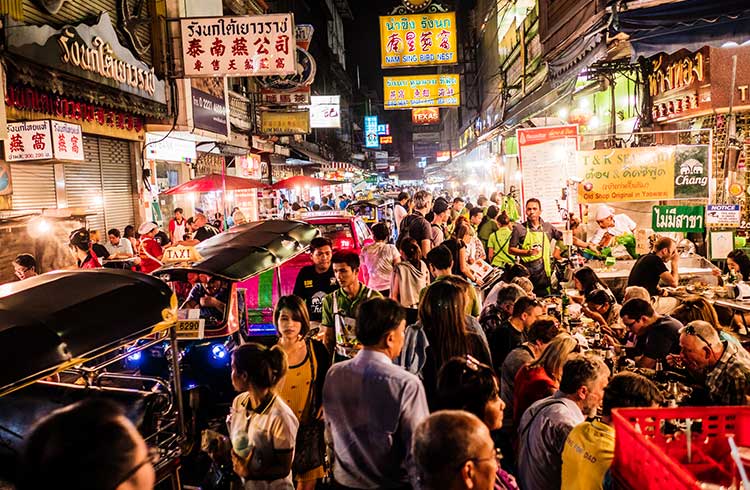
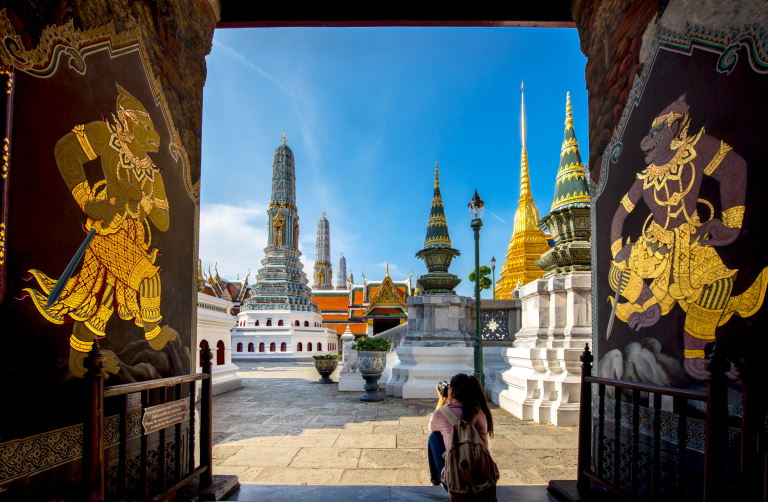
1 Comment
Thailand - Exercise a high degree of caution
Exercise a high degree of caution in Thailand due to ongoing political tensions and sporadic demonstrations in Bangkok and elsewhere in the country.
Don't get caught up in a Coup.